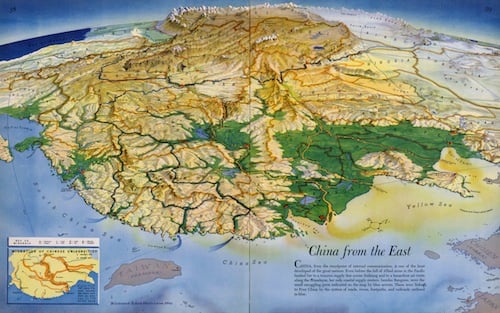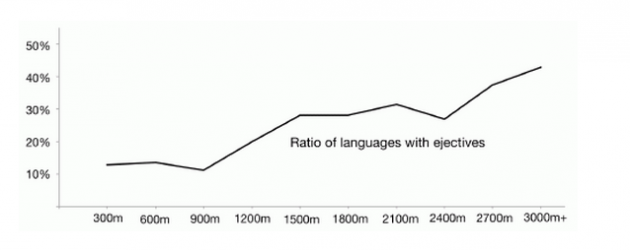Does Geography Influence Language?
Does geography influence language?
A recent study that was published by anthropological linguistics professor Caleb Everett of the University of Miami in PLoS ONE Journal suggests that it does. According to this study, there is a sound called an ejective, that is mainly used in high altitude locations on every continent throughout the world. Because this sound requires the use of an unnatural amount of air from people of lower altitudes, the study thus provides strong evidence that the nature of a region´s geography has a direct influence on a language’s phonology.
What Is An Ejective?
Experts describe it as a sudden burst of air that is created in the back of the throat and then compressed. As mentioned above, ejectives require an amount of air in the pharynx that is unnatural to people from lower elevation levels. The closest resemblance that English has to an ejective is our k sound, however it is much harsher with more breath released in its pronunciation. You can find Everett giving an explanation and example of how it is pronounced here.
Details About Findings
The study looked at languages throughout the world, paying special attention to their elevation levels. A little under 600 languages were included in the study, 92 of which were found to use ejectives. There were six locations that were labeled as being of extremely high altitude (over 4,900 feet/1,500 meters). The areas that were examined were the the Caucasus range and Javakheti plateau; Andes and the Andean altiplano; the southern African plateau; the plateau of the east African rift and the Ethiopian highlands; the North American Cordillera; and the Tibetan plateau. Of these six locations, five of them had local languages that used ejectives. They were found in a whopping 87% of the languages in these five regions. The one exception was the people in the Tibetan plateau, who are suspected to have a unique adaptation to the altitude.
Other Examples of Geographical Influence on Language
According to a follow up study by Sean Roberts after Everett´s findings with ejectives, there is in fact an even stronger correlation between geography and grammatical structure. Roberts found that there is also a connection between “the order of object and verb and the and the order of adjective and noun”. Furthermore, another study performed by John Fought found evidence that there is variance in word structure between high and low altitudes as well. Upon performing a world sample, Frought found that indigenous languages of tropical and subtropical climates have higher levels of sonority, suggesting that these languages have a higher emphasis on vowels than consonants. This lends itself to Everett´s findings, since ejectives are a type of sound that vary in the pronunciation of consonance.
Want to Learn More About Foreign Sounds and Pronunciations?
Want to hear what ejectives sound like from native speakers? Book your flight here at Fugazi Travel to any of the five exotic locations in the world that have them in their languages. Two of the most difficult parts of learning a foreign language are the pronunciation and the sentence structure. We at Language Trainers can help you build all the skills that you will need to function and do business in foreign exotic lands. We invite you to take one of our language level tests. For further information, call or email us here.



